So Makers promoting #Tubelight as Shah Rukh Khan Movie in Overseas for collections. Tubelight in Belgium Salman pic.twitter.com/pDHPICfg0i
— SADDY (@king_sadashiva) June 25, 2017
Meanwhile, rumours began circulating on Tuesday that Tubelight distributors had requested exhibitors to slash ticket prices for the film across India by 30%, and while this has not been confirmed, it will be interesting to see if such a price-drop will lead to increased audiences or further cool the public interest in the film.
By now, therefore, it is clear to even the staunchest Salman Khan fan that the actor has scored an own-goal. Tubelight is obviously an ill-conceived attempt to cash in on the Bajrangi Bhaijaan formula, and it has been a disappointment. "There was talk in the industry whether Tubelight would cross Baahubali 2 collections," says trade analyst Amod Mehra. "Now all are worried as to whether the film will break even."
Of course, films fail all the time. Every successful actor who has been around for a while has had a fair few catastrophic mega-flops in their filmography, and it's only natural for a Salman Khan film to fail every now and again.
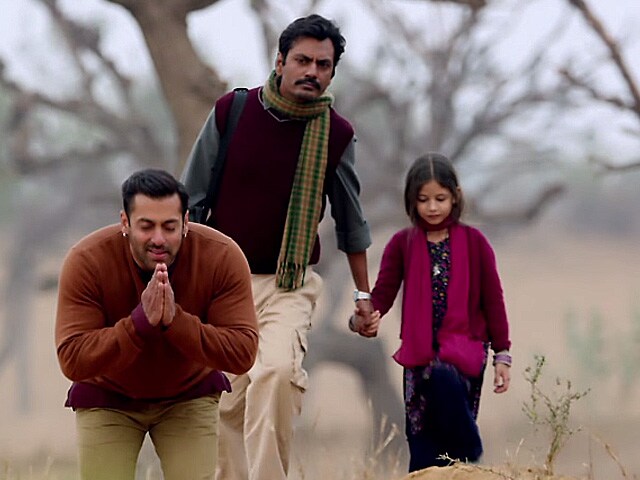
The problem here is that Salman Khan's stardom is about his being bulletproof at the box office. Aamir Khan is the one who experiments and comes up with something offbeat every few years, Shah Rukh Khan still spreads his all-wooing arms wide open and plays the romantic lead, Akshay Kumar ages gracefully through movies that involve significant running, Ajay Devgn clowns around on ridiculous budgets, and - like we can call Irrfan Khan THE actor - Salman Khan has simply been THE star.
In the 2000s, as Bollywood tried to make slicker movies, Salman had more commercial misses than hits: for every Baghban and Partner, there was more than one God Tussi Great Ho or Salaam-E-Ishq or Main Or Mrs Khanna or London Dreams. Alongside these last two monstrosities, in 2009, came Wanted, a South Indian remake that clearly struck a chord. Released after Aamir Khan's Ghajini remake, Wanted heralded a new Rajinikanthian direction for Salman where he could play up his own stardom and his shirtless chest could take the place of an actual script.
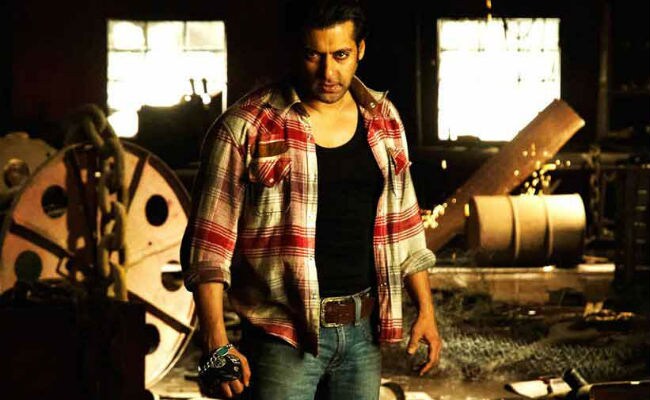
Dabangg, in 2010, opened up the floodgates. Now, like a proud B-movie actor, Khan could choose not to act and, instead, merely indulge in repetitive yet entertaining circusry. Over and over again. Ready, Bodyguard, Ek Tha Tiger, Dabangg 2, Kick. The self-promoting films kept coming, and soon other heroes began jumping aboard the superstar-equals-script bandwagon we thought we'd left behind in the 80s: Akshay Kumar was Rowdy Rathore, Ajay Devgn was Singham, and so on. This is where Salman, to his credit, tried to mix it up, making Sooraj Barjatya's ostensibly romantic Prem Ratan Dhan Payo in 2015 alongside his biggest recent success, Kabir Khan's Bajrangi Bhaijaan.
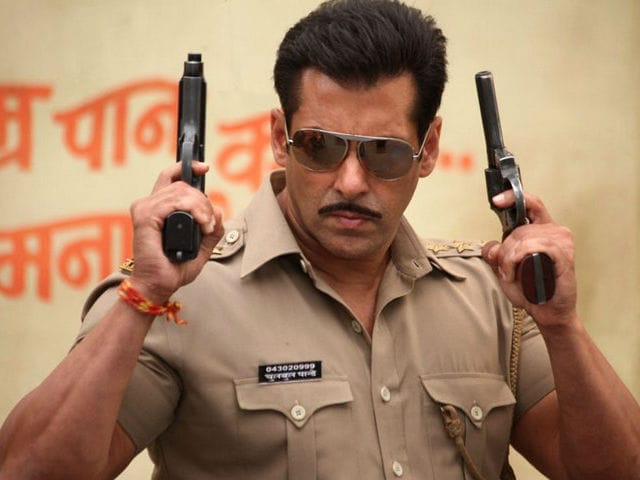
Bajrangi Bhaijaan, a stirring and cleverly made film, showcased Salman the do-gooder, playing up his humanitarian image and telling the Indian public it was okay to indulge the big lug because, hey look, he means well. Khan had actually tried something similar with a Pay It Forward ripoff in 2014 called Jai Ho, one of his few films that sunk without a trace, perhaps because Sohail Khan isn't as skilled a director, and perhaps because Salman chose not to take his shirt off in the film. Here's a quote from my review of that film:
"Sitting in a single-screen theatre, the air was filled with shrill, thrilled whistles as soon as the censor certificate hit the screen. The first glimpse of Khan - via braceleted wrist - had the crowd in paroxysms. Imagine a movie theatre full of 14-year-old girls getting their first glimpse of Michael Jackson (Or McCartney. Or Bieber. Pick a generation) except with grown men shrieking instead of preteen girls. (During the climactic fight sequence, these men raucously yell "kapda utaar", breathlessly exhorting their bhai to peel off his shirt and make their day. It's more blatantly than any of our leading ladies get objectified, that's for sure.)"
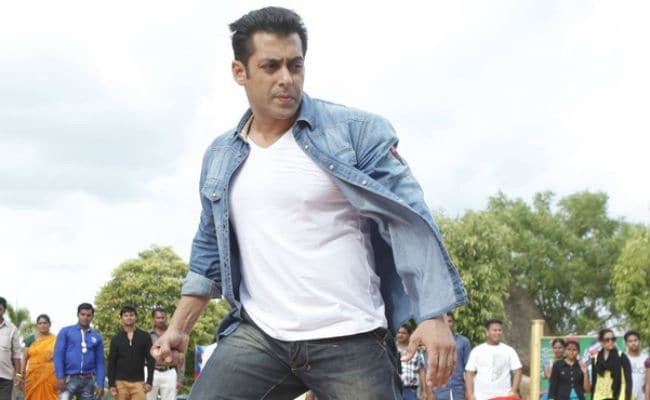
Bajrangi worked like gangbusters, though, and Salman-fever hit a new peak. Here was the man whose films would topple box-office records. Sultan, released in 2016 and directed by Ali Abbas Zafar, set a new standard for domestic collections. He stood tall, then, for lack of any other big-enough benchmark, as Bollywood's Baahubali.
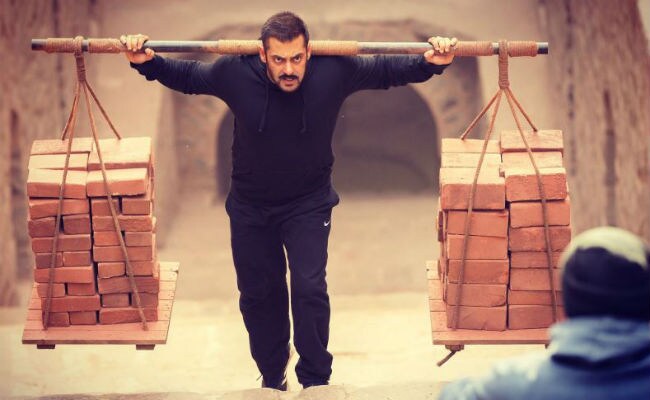
Yet, after the last few months, the box office is not what it used to be. Baahubali 2 has earned ridiculous amounts of money and continues to do so, several weeks into its release. Dangal, meanwhile, became an unprecedented success in China, and has now passed the hitherto unimagined figure of Rs 2,000 crores and become the fifth-highest grossing non-English language film of all time. The game has changed.
Thus, even if Tubelight had actually been a big hit and crossed, say, Rs 500 crore, instead of the 160-170 crore it is optimistically expected to touch now, it might not have mattered to Brand Salman. He'd still have been far behind the new benchmarks - a position the star, his fans and his brand would have found hard to swallow. This is a time when Salman Khan needs new ideas, new markets to conquer, new ways to position himself. And, as can be learned from both Jai Ho and Tubelight, making movies that recast children's roles with a man in his fifties might not be the answer. In the battle for the box office, Salman isn't number one anymore. At least until he changes the game. Again.
(Raja Sen is a film critic, columnist and screenwriter. He is currently working on a children's book.)
Disclaimer: The opinions expressed within this article are the personal opinions of the author. The facts and opinions appearing in the article do not reflect the views of NDTV and NDTV does not assume any responsibility or liability for the same.


